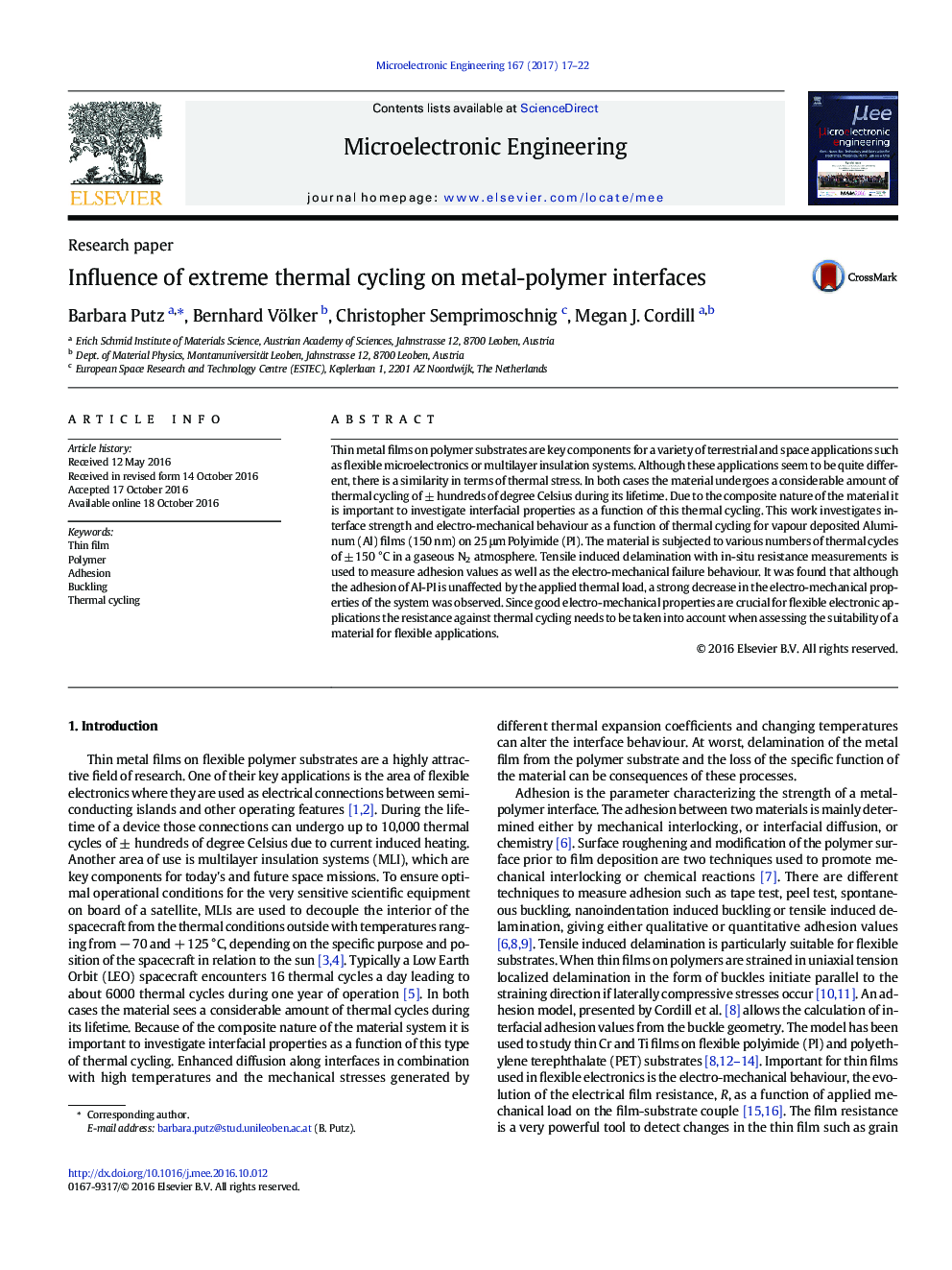| Article ID | Journal | Published Year | Pages | File Type |
|---|---|---|---|---|
| 4971048 | Microelectronic Engineering | 2017 | 6 Pages |
â¢Thermal cycling deteriorates the electro-mechanical behaviour of Al films on polyimide.â¢Buckling of a thin Al film on compliant polyimide occurs at 40% tensile strain.â¢The adhesion energy of a thin Al film on compliant polyimide was measured as 70 J/m2.â¢The adhesion energy remains constant up to 200 thermal cycles of ± 150 °C.
Thin metal films on polymer substrates are key components for a variety of terrestrial and space applications such as flexible microelectronics or multilayer insulation systems. Although these applications seem to be quite different, there is a similarity in terms of thermal stress. In both cases the material undergoes a considerable amount of thermal cycling of ± hundreds of degree Celsius during its lifetime. Due to the composite nature of the material it is important to investigate interfacial properties as a function of this thermal cycling. This work investigates interface strength and electro-mechanical behaviour as a function of thermal cycling for vapour deposited Aluminum (Al) films (150 nm) on 25 μm Polyimide (PI). The material is subjected to various numbers of thermal cycles of ± 150 °C in a gaseous N2 atmosphere. Tensile induced delamination with in-situ resistance measurements is used to measure adhesion values as well as the electro-mechanical failure behaviour. It was found that although the adhesion of Al-PI is unaffected by the applied thermal load, a strong decrease in the electro-mechanical properties of the system was observed. Since good electro-mechanical properties are crucial for flexible electronic applications the resistance against thermal cycling needs to be taken into account when assessing the suitability of a material for flexible applications.
Graphical abstractDownload high-res image (106KB)Download full-size image
